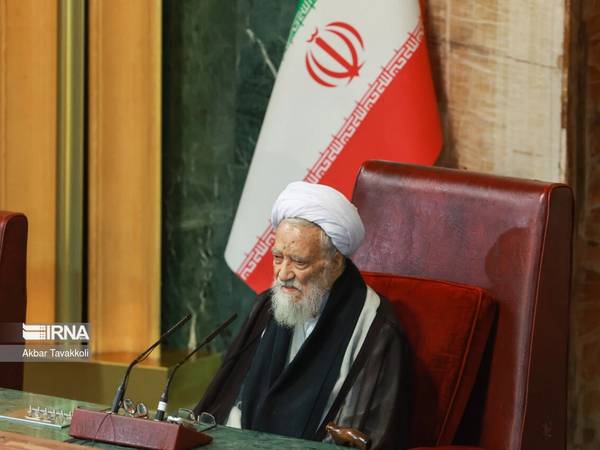Members of the Assembly of Experts, a body tasked with choosing the Islamic Republic's next supreme leader elected senior cleric Ayatollah Mohammad Ali Movahedi Kermani as the Assembly's chairman on Tuesday.
Before his death in a helicopter crash on Sunday, former President Ebrahim Raisi was the most likely candidate for the post.
Following his death, the Assembly, and in fact Supreme Leader Ali Khamenei were in difficulty to choose someone trustworthy from among the elderly clerics at the Assembly. There is no absolute guarantee that they chose the right person for one of the most sensitive periods in the Islamic Republic's history, although they did choose one of the most capable.
Iranian politicians and analysts agree that the new session of the Assembly of Experts is particularly significant, as it may be the one tasked with deciding Khamenei's succession. Some former members, such as Hassan Rouhani, have spoken bitterly about the inevitability of this decision, given Khamenei's age and illness. Ironically, however, Khamenei is about ten years younger than both the previous and the new chairmen of the Assembly.
Born in 1931, Movahedi Kermani is 93 years old, but looks relatively fit compared to other aging and ailing members of the Assembly.
Movahedi Kermani, an old guard figure in the Islamic Republic, is essentially the candidate they wanted, despite not having maintained a high profile in the Assembly before. Seyyed Hashem Hosseini Bushehri and Alireza Erafi, the head of Iran's seminaries, have been elected as deputy chairmen. Erafi who is also trusted by Khamenei, might have been a better choice for the position in terms of leadership capabilities.
The Assembly's previous chairman Ayatollah Ahmad Jannati is past 100 and too old to be able to walk, talk, and take care of himself independently. He did not run for the election on Tuesday, although he still keeps his powerful position at the Guardian Council where he determines who can and who cannot run for Parliament or Presidency, albeit based on Khamenei's suggestions.
Movahedi Kermani is a right-wing conservative with a background in the Militant Clerics Society and the former Islamic Republic Society. He was elected to the Majles five times and has been a member of the AoE since the very beginning. He is also a member of the Expediency Council.
He has taken tough stances on certain cultural issues, including declaring the messaging service Telegram as haram (religiously prohibited). However, it is possible that he has little understanding of what Telegram actually is and made the statement as a formulaic pronouncement.
Movahedi Kermani was close to the IRGC during the first years of the Islamic Republic but his links to the new generation of the Revolutionary Guard officers are not clear.
Of the 86 members of the Assembly, 83 were present at Tuesday's meeting, some with assistance from male nurses. Movahedi Kermani received 55 votes and will chair the Assembly's meetings for the next two years. Managing meetings where over 30 percent of the attendees do not support his leadership could prove challenging.
Unless all decisions are prearranged and the stage is set by Khamenei himself by naming his successor(s), the new chairman of the Assembly may struggle to achieve consensus on succession when the Islamic Republic needs it most. This uncertainty leaves the future unclear for many, insecure for some, and unstable for others.
